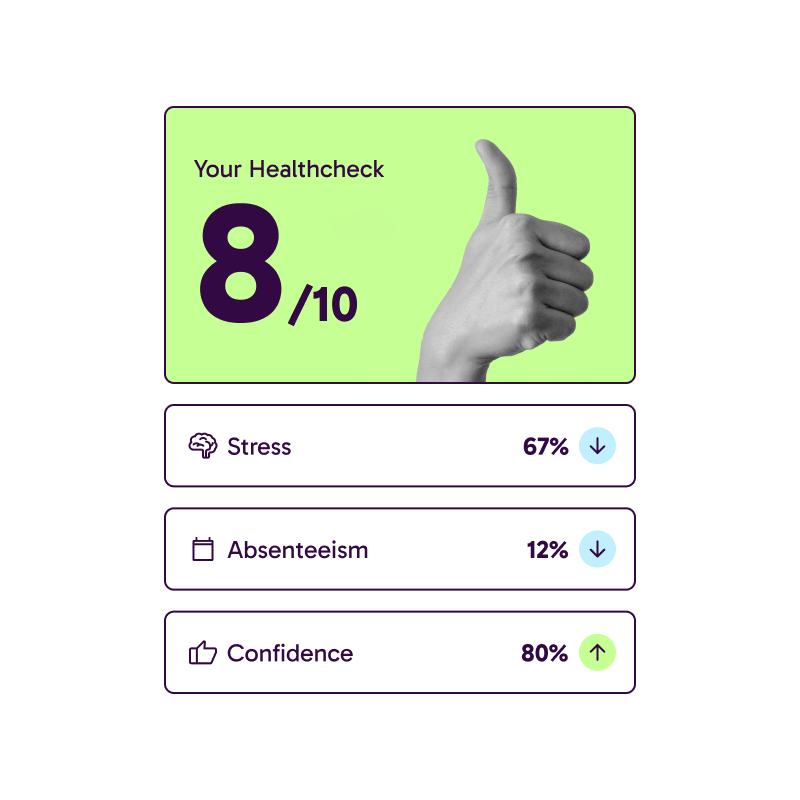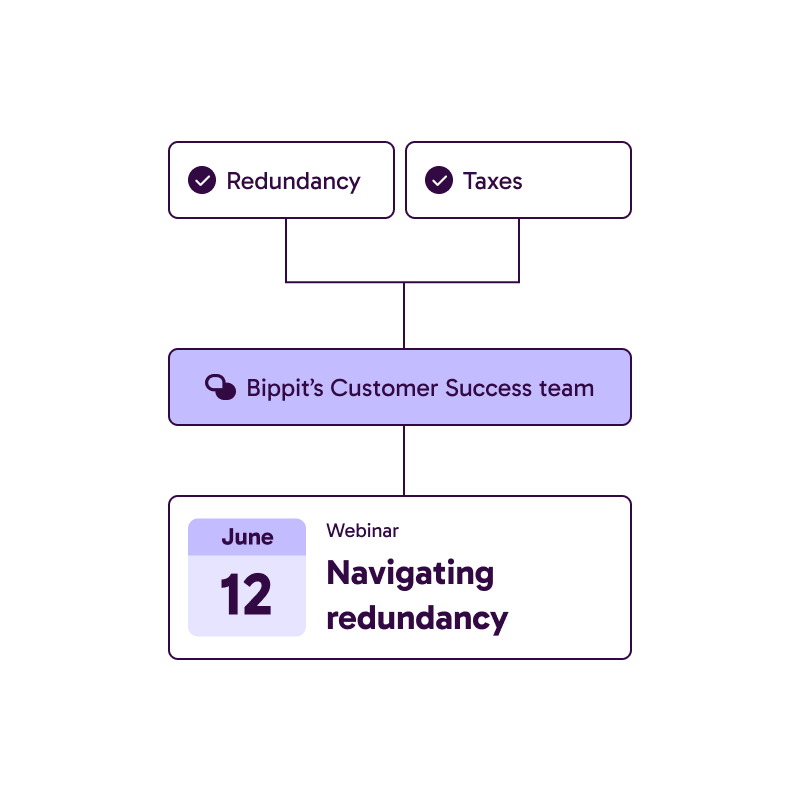Use cases
One trusted platform for your whole organisation
Hundreds of leading employers use Bippit to retain their talent, navigate pension changes, support restructuring, and tackle workplace stress.

Hundreds of leading employers use Bippit to retain their talent, navigate pension changes, support restructuring, and tackle workplace stress.


Money is often a taboo subject, so employees stay silent. Bippit makes it safe to ask for help and get support.

Healthy financial habits create stability for employees, both in their lives and in the workplace.

Money worries are the No. 1 cause of stress at work. Bippit helps employees feel in control now, and pepared for what’s next.
cause of stress at work.
in the cost of living, so employees are struggling to make ends meet.
lost by UK employers from financial stress absenteeism each year.
reason employees quit.

When employees feel supported, they talk about it. Financial wellbeing helps build a culture people want to join, and stay in.

Bippit helps employees make the most of their salary, so they feel more secure, and more settled in their job.

When you change the financial lives of your people with professional support, their appreciation will be clear to see.

Our experts help employees understand what’s changing, why it matters, and how it impacts them.

Pension changes affect everyone differently. That's why our expert guidance is personalised to each employee.

We deliver dedicated training to HR and leadership as an extra layer of support on top of our employee guidance.

Our experts are briefed on organisational changes from day one, including any documents, policies, and guardrails.

Our experts can explain redundancy, so employees understand the process and feel supported throughout the process.

Departing employees receive 3 months of continued financial support from Bippit as standard while they transition to a new job.

We have something called order of items in this component. What it does is, it adds classes to the div that contains the icons with the text and the big image.
The default settings are
flex-hor-cs-gap-m smalldev-flex-vert-cc smalldev-flex-vert-inverse
Please note there is a space between flex-hor-cs-gap-m and smalldev-flex-vert-cc and smalldev-flex-vert-inverse
This is because they are different classes. To have more that one class in the component editor we separate them by adding spaces between them.
If you want the image to be on the left and icons on the right, you would paste this instead:
flex-hor-cs-gap-m-inverse smalldev-flex-vert-cc smalldev-flex-vert-inverse

We have something called order of items in this component. What it does is, it adds classes to the div that contains the icons with the text and the big image.
The default settings are
flex-hor-cs-gap-m smalldev-flex-vert-cc smalldev-flex-vert-inverse
Please note there is a space between flex-hor-cs-gap-m and smalldev-flex-vert-cc and smalldev-flex-vert-inverse
This is because they are different classes. To have more that one class in the component editor we separate them by adding spaces between them.
If you want the image to be on the left and icons on the right, you would paste this instead:
flex-hor-cs-gap-m-inverse smalldev-flex-vert-cc smalldev-flex-vert-inverse






Get in touch to learn more about our impact at leading organisations.
Book a demo
© 2026 All Rights Reserved
By visiting this website you agree to our cookie and privacy policy
Regulated by the FCA (No. 845814)
Your data is protected by the ICO (No. ZA533579)